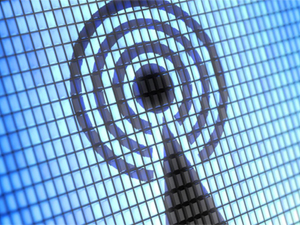



Date:06/10/18
 The Wi-Fi Alliance has introduced a new naming system that will make it easier for consumers to identify Wi-Fi generations.
The Wi-Fi Alliance has introduced a new naming system that will make it easier for consumers to identify Wi-Fi generations.
According to a new press release from the Wi-Fi Alliance —a non-profit organization that promotes Wi-Fi technology and certifies Wi-Fi products for conformity to certain standards of interoperability — new generations of Wi-Fi internet connectivity will, going forward, have a simplification change in the nomenclature used to designate them. Such changes should make it easier for consumers to understand the speed and capabilities of various hardware devices, as well as for manufacturers and retailers to market said products.
The group is encouraging router manufacturers to use the names Wi-Fi 4 (currently called 802.11n), Wi-Fi 5 (known as 802.11ac) and Wi-Fi 6 (802.11ax, a faster variety that won’t be on the market until next year), so people can more easily grasp if they’re getting the most recent technology. While the name switches aren’t mandatory, the trade group expects most companies will comply.
With the new names, the Wi-Fi Alliance is also throwing its weight behind 802.11ax as the next-gen standard. Some vendors have started using 802.11ad, which adds 60GHz millimeter wave support to WiFi for higher throughput, however, that’s now officially not Wi-Fi 6. That honor goes to 802.11ax, which doesn’t need new antennas, as it makes more efficient use of the same 2.4GHz and 5GHz spectrum.
"For nearly two decades, Wi-Fi users have had to sort through technical naming conventions to determine if their devices support the latest Wi-Fi," said Edgar Figueroa, president and CEO of Wi-Fi Alliance. "Wi-Fi Alliance is excited to introduce Wi-Fi 6, and present a new naming scheme to help industry and Wi-Fi users easily understand the Wi-Fi generation supported by their device or connection."
Several major technology players including Netgear, MediaTek, Qualcomm, Intel, Marvell, and Broadcom have publicly voiced support for Wi-Fi 6 and the introduction of more straightforward terminology.
The underlying Wi-Fi specifications will keep their IEEE technical names, of course. The Wi-Fi Alliance comes later in the development process, just before the point when consumers get involved, smoothing the way with compatibility tests that let device manufacturers put reassuring certification logos on their product boxes.
Wi-Fi Alliance Simplifies 802.11 Networking Names, Chooses 802.11ax as Wi-Fi 6
 The Wi-Fi Alliance has introduced a new naming system that will make it easier for consumers to identify Wi-Fi generations.
The Wi-Fi Alliance has introduced a new naming system that will make it easier for consumers to identify Wi-Fi generations.According to a new press release from the Wi-Fi Alliance —a non-profit organization that promotes Wi-Fi technology and certifies Wi-Fi products for conformity to certain standards of interoperability — new generations of Wi-Fi internet connectivity will, going forward, have a simplification change in the nomenclature used to designate them. Such changes should make it easier for consumers to understand the speed and capabilities of various hardware devices, as well as for manufacturers and retailers to market said products.
The group is encouraging router manufacturers to use the names Wi-Fi 4 (currently called 802.11n), Wi-Fi 5 (known as 802.11ac) and Wi-Fi 6 (802.11ax, a faster variety that won’t be on the market until next year), so people can more easily grasp if they’re getting the most recent technology. While the name switches aren’t mandatory, the trade group expects most companies will comply.
With the new names, the Wi-Fi Alliance is also throwing its weight behind 802.11ax as the next-gen standard. Some vendors have started using 802.11ad, which adds 60GHz millimeter wave support to WiFi for higher throughput, however, that’s now officially not Wi-Fi 6. That honor goes to 802.11ax, which doesn’t need new antennas, as it makes more efficient use of the same 2.4GHz and 5GHz spectrum.
"For nearly two decades, Wi-Fi users have had to sort through technical naming conventions to determine if their devices support the latest Wi-Fi," said Edgar Figueroa, president and CEO of Wi-Fi Alliance. "Wi-Fi Alliance is excited to introduce Wi-Fi 6, and present a new naming scheme to help industry and Wi-Fi users easily understand the Wi-Fi generation supported by their device or connection."
Several major technology players including Netgear, MediaTek, Qualcomm, Intel, Marvell, and Broadcom have publicly voiced support for Wi-Fi 6 and the introduction of more straightforward terminology.
The underlying Wi-Fi specifications will keep their IEEE technical names, of course. The Wi-Fi Alliance comes later in the development process, just before the point when consumers get involved, smoothing the way with compatibility tests that let device manufacturers put reassuring certification logos on their product boxes.
Views: 393
©ictnews.az. All rights reserved.Similar news
- Azerbaijani project to monitor disease via mobile phones
- Innovative educational system to be improved under presidential decree
- NTRC prolongs license of two TV and radio organizations for 6 years
- Azerbaijan establishes e-registry for medicines
- Azerbaijani museum introduces e-guide
- Nar Mobile opens “Nar Dunyasi” sales and service center in Siyazan city
- International conference on custom electronic services held in Baku
- OIC secretary general to attend COMSTECH meeting in Baku
- Azerbaijan develops earthquake warning system
- New law to regulate transition to digital broadcasting in Azerbaijan
- Azerbaijani State Social Protection Fund introduces electronic digital signature
- Intellectual traffic management system in Baku to be commissioned in December
- Tax Ministry of Azerbaijan started receiving video-addresses
- World Bank recommends Azerbaijan to speed up e-service introduction in real estate
- Azerbaijan to shift to electronic registration of real estate





















